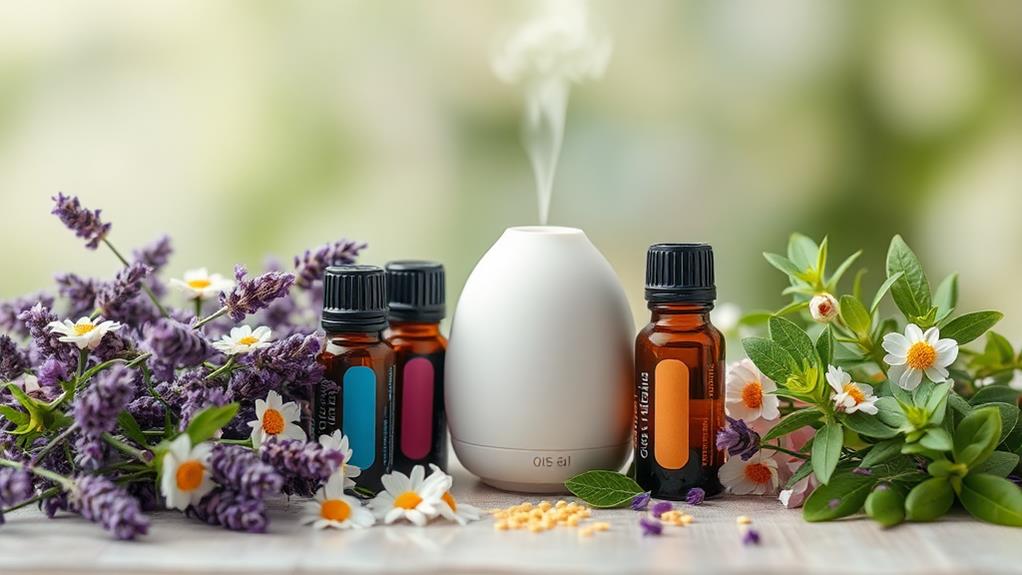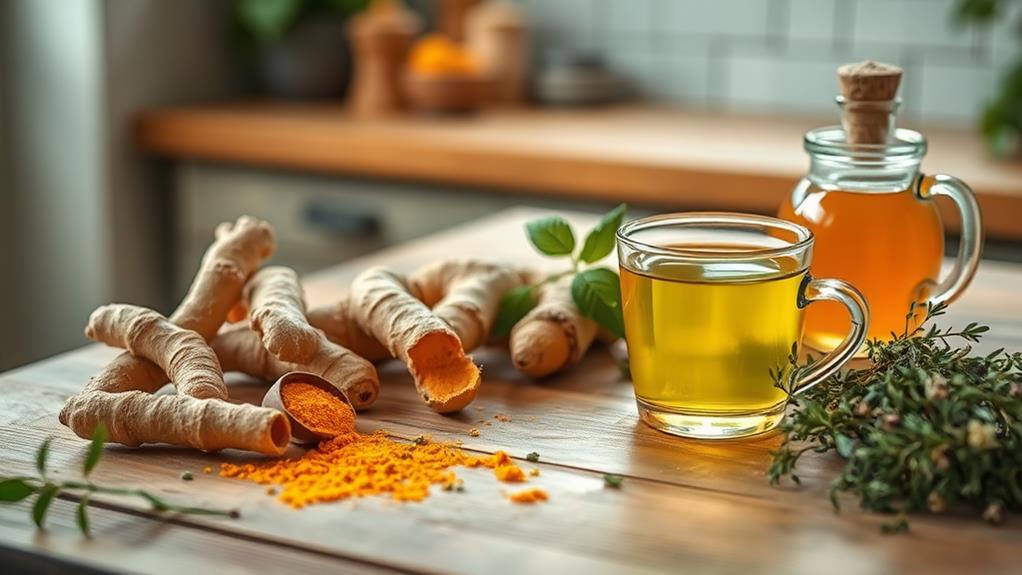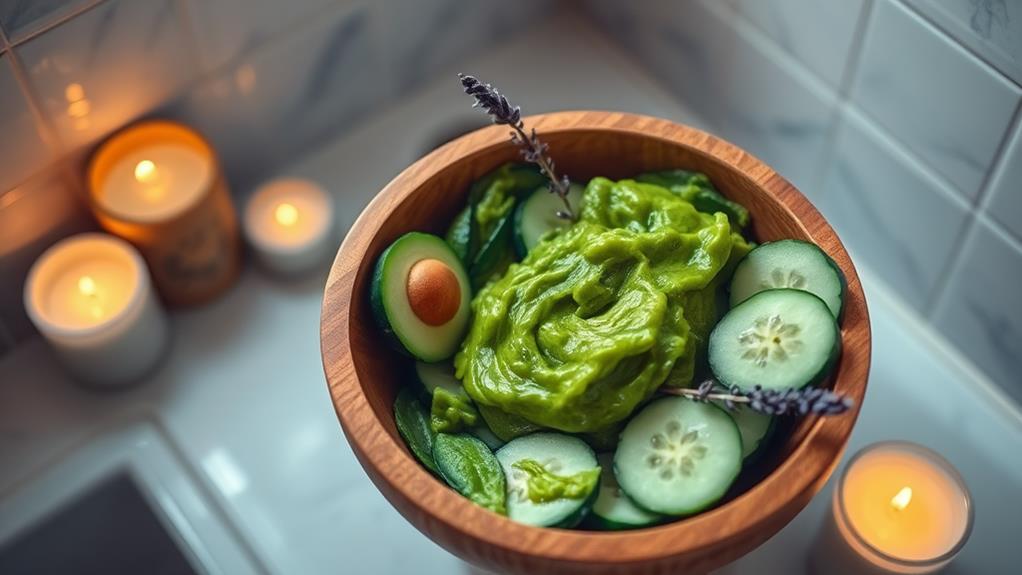If you're dealing with urticaria, you might feel overwhelmed by the various treatment options available. However, managing it doesn't always have to involve medication. By exploring five natural remedies and seven self-care tips, you can take a proactive approach to alleviate your symptoms. From herbal remedies to dietary considerations, you may find that the right strategies can make a significant difference. Curious about which specific methods can help you regain control and comfort? Let's break down these effective techniques.
Key Takeaways
- Incorporate anti-inflammatory foods like ginger, turmeric, and omega-3 rich salmon into your diet to help reduce urticaria symptoms.
- Use soothing herbal remedies such as chamomile, peppermint, and aloe vera to calm irritated skin and reduce itching.
- Practice stress management techniques like mindfulness, deep breathing, and regular exercise to alleviate triggers associated with urticaria.
- Keep a food diary to identify and avoid potential allergenic foods and triggers that may worsen urticaria.
- Utilize essential oils, such as lavender and chamomile, mixed with carrier oils for topical application or added to baths for relaxation.
Herbal Remedies

When it comes to managing urticaria, herbal remedies can be a helpful addition to your treatment plan. You might find that using natural herbs like chamomile or peppermint can soothe your skin and reduce itching.
They're easy to use—just brew a tea or make a compress! Aloe vera is another great option; it's cooling and can be applied directly to your skin.
Don't forget about turmeric, which has anti-inflammatory properties. You can mix it into food or take it as a supplement.
Always remember to start with small amounts and see how your body reacts. Consulting with a healthcare professional before trying new remedies is a smart idea.
You're taking a positive step toward feeling better!
Dietary Considerations
Managing urticaria effectively often involves paying attention to your diet as well. What you eat can make a big difference in how your skin feels.
Start by keeping a food diary to track any foods that might trigger your symptoms. Common culprits include spicy foods, alcohol, and certain preservatives.
Instead, try focusing on fresh fruits, vegetables, and whole grains. These foods can help support your immune system and reduce inflammation.
Staying hydrated is also super important, so drink plenty of water throughout the day.
If you're unsure about specific foods, don't hesitate to consult a dietitian.
Essential Oils

Essential oils can be a valuable addition to your urticaria management routine. These natural oils, like lavender, chamomile, and peppermint, can help soothe your skin and reduce irritation.
You can easily use them by mixing a few drops with a carrier oil, like coconut or almond oil. Once mixed, gently massage the blend onto the affected areas.
Inhaling the calming scents can also ease your mind and promote relaxation. Just remember to do a patch test first to avoid any allergic reactions.
You can even add a few drops to your bath for a soothing experience! With a little creativity and care, essential oils can help you feel more comfortable and confident while managing urticaria.
Stress Management
How can you effectively manage stress to help alleviate urticaria symptoms?
First, try deep breathing exercises. Taking slow, deep breaths can calm your mind and body.
You could also practice mindfulness or meditation, which helps you stay present and reduce anxiety.
Regular physical activity, like walking or dancing, releases endorphins that boost your mood.
Don't forget about getting enough sleep—rest is essential for managing stress.
Connecting with friends or family can provide support, too.
Finally, consider journaling your thoughts and feelings; it's a great way to express yourself.
By using these techniques, you can create a more relaxed environment, which may help improve your urticaria symptoms and overall well-being.
You've got this!
Natural Anti-Inflammatories

Many people find relief from urticaria symptoms by incorporating natural anti-inflammatories into their diets. Foods like ginger, turmeric, and green tea can help reduce inflammation in your body.
These tasty choices not only add flavor to your meals but can also support your health. You might also want to try foods rich in omega-3 fatty acids, like salmon and walnuts. These can work wonders for inflammation too!
Don't forget about fruits and veggies, especially berries and leafy greens, which are packed with antioxidants. Adding these foods to your daily meals can make a big difference.






